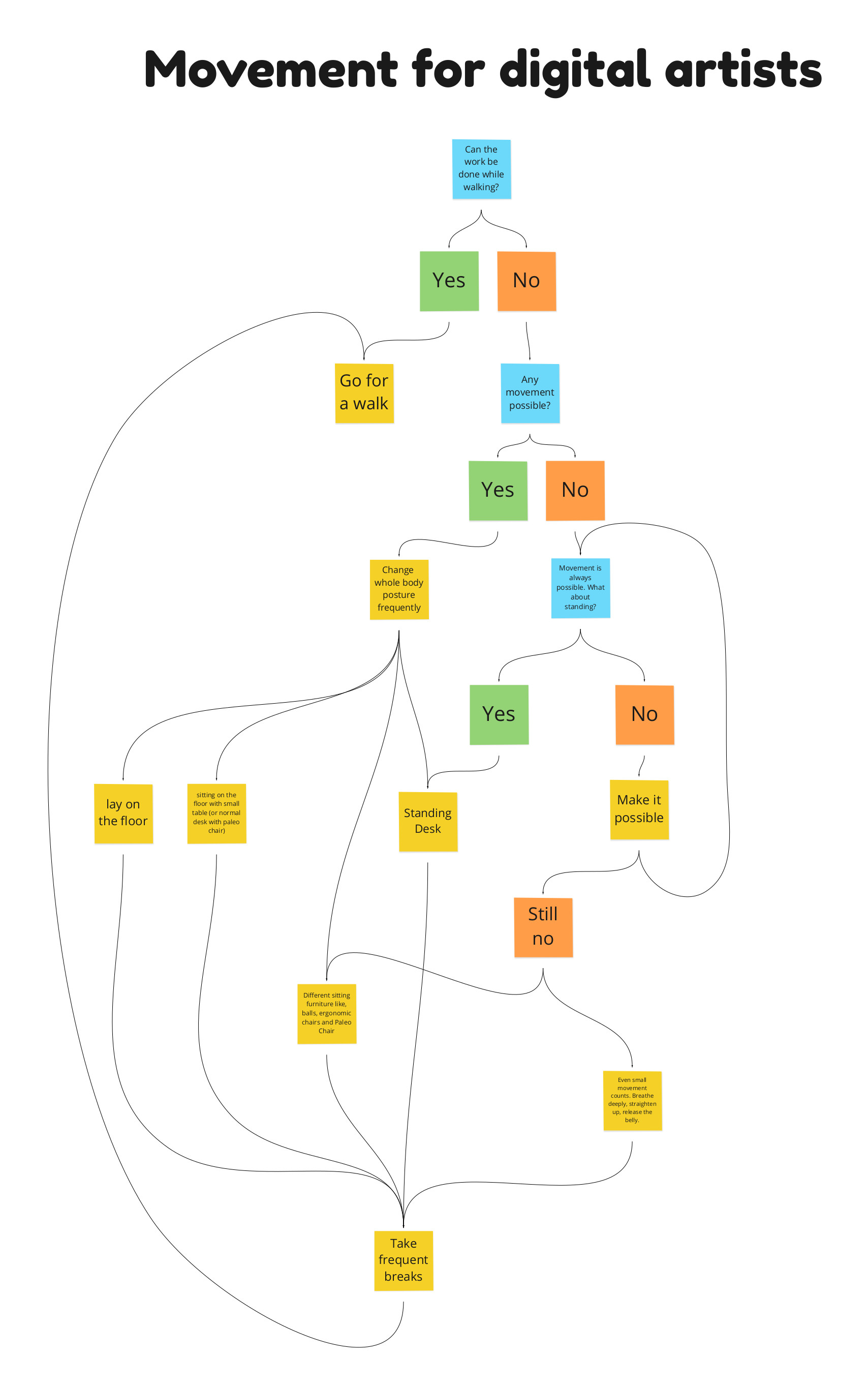Animator's Paradox: Movement Opportunities
This page is part of the BA Thesis "The Animator's Paradox" by Lukas Wind (2022)
Movement opportunities
From Aristotle to Steve Jobs, walking meetings attracted many prolific minds. Sitting down to solve a problem is not really neat. There is an endless amount of opportunities to move at work, not even counting the way to the work (and even when working from home, we can "pretend" to go to work and go for a walk). Taking the toilet that is the farthest away, at best a few stairs up or down, or visit people more frequently instead of (or in addition to) mailing them can bring physical activity back to a digital working environment.1
To get specific, analyzing a task to spot movement opportunities can be a very helpful tool. Moving while working is not a privilege, it is a habit. While it seems simpler to introduce movement in breaks and free time, working hours need extra attention.
Here is a diagram to help sort things out and find the mindset to move more while working:
This is the end of this series – and hopefully a start for you.
Sources
1 Stillman, J. (2021, 5. January). The Simple Trick Great Thinkers From Charles Darwin to Steve Jobs Used to Be More Creative. Inc.Com. Retrieved 22. December 2021, from https://www.inc.com/jessica-stillman/steve-jobs-swore-by-walking-meetings-heres-science-of-why-theyre-awesome-how-to-do-them-right.html
